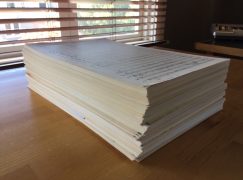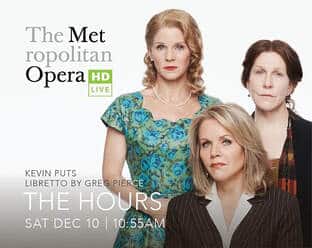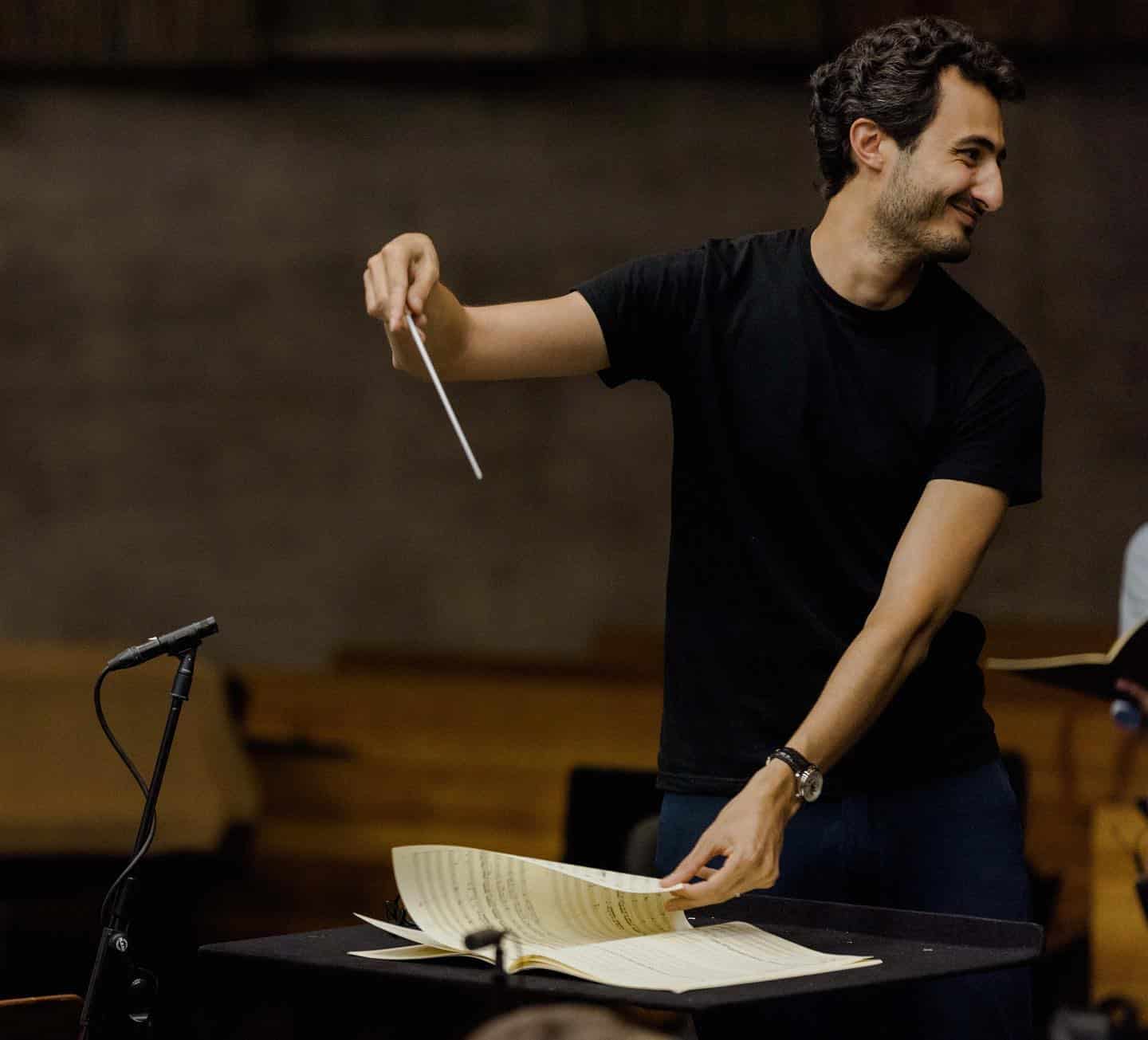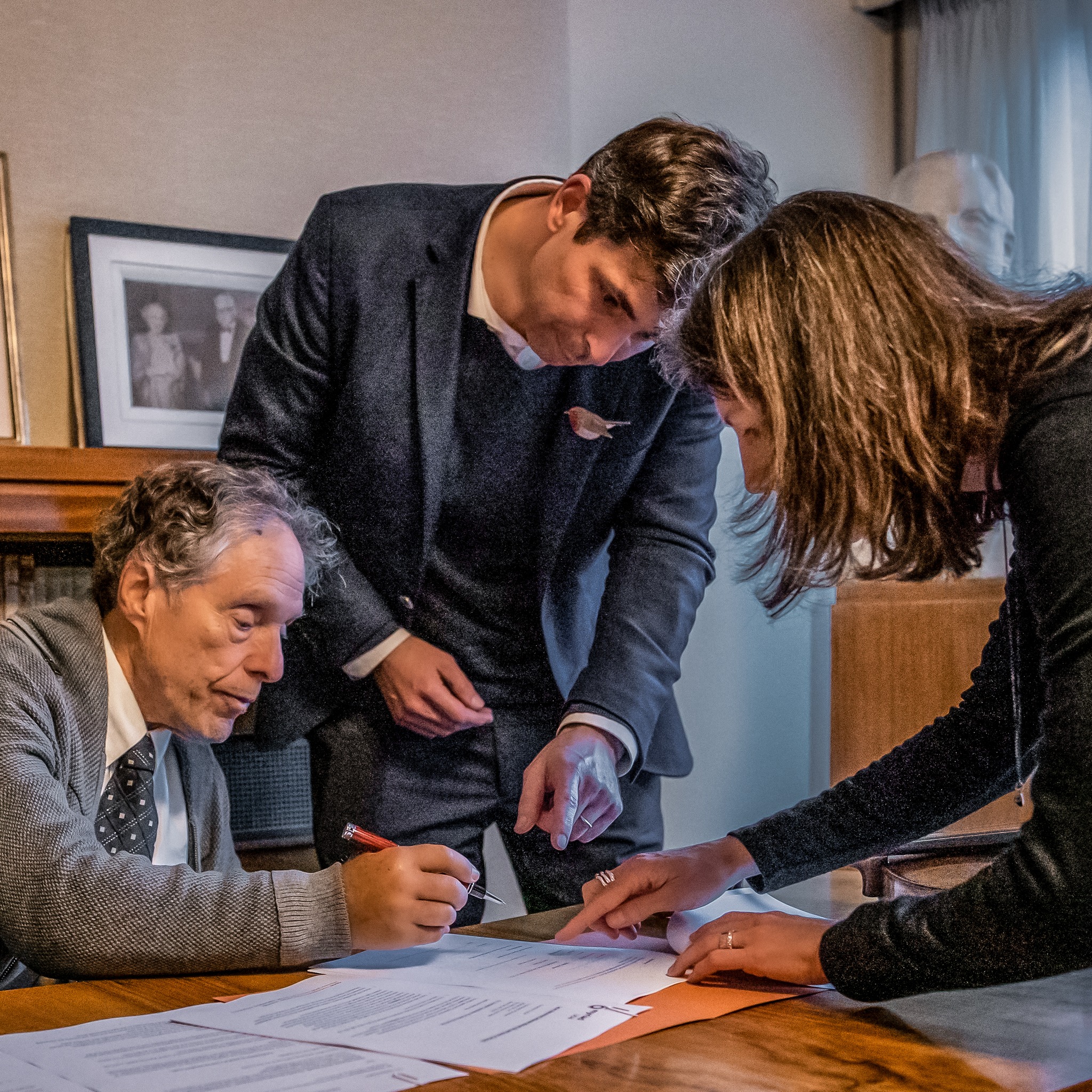John Adams: I finished my opera
mainThe composer tweets: ‘Voila! Completed manuscript of new opera Girls of the Golden West. 2 yrs of panning for nuggets. Time for a break.’

Elsewhere, in an interview with John von Rhein of the Chicago Tribune, he sounds gloomier:
‘It can be a challenge to fill those enormous halls with an entire program of just my music,” he said. “I was reminded that classical music is what people say it is, largely music of the past. It takes great time and effort to write music that might have a chance of entering the repertory, eventually.
‘One thing that disturbs me is that the friends I have dinner with — people who bear the same intellectual, social and political interests as I — don’t listen to my music. Very few of them even listen to Beethoven. They listen to — I don’t know — James Taylor or the Gipsy Kings. I realize I travel in a small cultural arena.’





What Adams says here about his friends is terrible and it symbolizes a broad cultural problem as everybody knows by now. Maybe he should be more picky.
(The pile on the table looks quite repetetive.)
Adams is certainly no Handel, Mozart or even G & S. Folk these day find modern composed music boring and tuneless, composers need to write to please their ears otherwise they will be ignored. My music library is vast from 1120-1899 AD, it ends with Johann Strauss Sohn! Academic composers do not have to sell their music to earn a living, it is all subsidised with grants, once they have day jobs, composing is only a sideshow, hence the reason why we have no proper music anymore, if they had to live by their music alone, it would sound better!
The first two composers you list didn’t survive by selling sheet music and concert tickets. At some point they were supported by courts, the equivalent of today’s grants and academic positions.
Conversely, John Adams has not, I believe, held an academic position since 1984.
Wrong on two counts, Handel did in fact make a lot of money from his sheet music if you look at his Bank of England accounts and those of the Royal household which Christopher Hogwood did, his concerts especially Oratorio, brought in a good income, he did have a pension from Queen Anne, £200pa, however he had to wait years for the Royal bounty to recoup his opera costs, overall his income was way ahead of JS Bach’s etc, his Will left £20,000 a considerable sum. The other point his music is still enjoyed long after his death in 1759, the same could not be said for others born last century.
Adams in January 2017 has been appointed a Professor at the Royal Academy of Music, so he does in fact have an academic post albeit visiting. This proves my point. Academics make lousy composers, they do not have the creative spark.
Well said, indeed it is puzzling why the 21st Century has not produced a composer who can write something we would want to hear, that bloke Tom Coult whose 5 min wonder was on the First night of the Proms is doing or has done a PhD, why do you need that to compose. Beethoven did not even have a school leaving cert. I doubt anyone will ever heard Coult’s 5 mins ever again, wonder how much was the Commission for it. They could just dig up an obscure baroque and save us all money.
There are good composers around, when one takes the trouble to look for them. The Proms only skim a thin layer of the availability. To find the good / right composers of the 21st century, an organisation like the Proms or an orchestra or an opera company needs specialized staff who are appointed to fulltime explore the field and not merely wave a wet finger and grab the trendy people who for some strange reason are talked about or being promoted by big publishers.
Always good to hear Salieri’s view on Mozart. Keep writing, Antonio.
People who think Adams is a Mozart, need therapy. (Often the cause is found in early youth.)
Here it is in a nutshell, Sir Thomas Beecham remarks on Wozzeck and modern music in general. One wonders what he would think of music in 2017!
https://www.youtube.com/watch?v=3Sz2P6i8aWY
https://www.youtube.com/watch?v=1ZGo4iJV2nM
What a nonsense. Beecham also had contemptuous words for Beethoven’s 7th symphony, so we don’t have to take his flippant remarks upon anything too seriously.
Wozzeck is a master piece of musical tragedy and has nothing to do with the destruction of the art form which happened later. It is a work, at the edge of what can still be considered music, but it is music – since it continuously refers to the entire musical and operatic tradition in the background, hence its theatrical effectiveness. It is a one-off thing however and cannot function as a basis for further development. It belongs to that place and time where it was born: old, sinking Vienna full of painful introspection.
Girls of the golden West. Such an original title. Kinda like Scheherazade 2.0. Adams has written some nice things, but if he wants his friends and others to really like his work he needs to buckle down and learn how to write a singable, memorable melody. Like Puccini.
Loved ‘Harmonium’ at the First Night of the Proms. Not too long, either!
Harmonium is beautiful indeed and that perrformance was great.
The problem with melodic writing in contemporary music is that the notes are mostly isolated entities, where the voice jumps from one to another pitch, but without the musical energies travelling along a line made-up of various different pitches. Also in Adams that is the case. This explains the stiffness of even contemporary tonal writing and the ‘coolness’ of John Adams.
I think you’re suggesting that modern compositions are pointilistic? Randomly jumping from place to place. I call it “DePussy” – where the cat’s paws land on the keyboard end up being the notes of the composition. “Though it be madness, there is method in it”!!!
Agree with all your other comments.
“even Vienna”, Herr van Klomp! Are you seriously suggesting that the most dyed-in-the-wool conservative concert audience in Europe is more receptive to modern music than a London one?
Not necessarily pointilistic, but like straight lines in a Mondriaan painting: from one straight line jumping to another straight line but disconnected in terms of melodic energy. Compare with the arabesques of Debussy or late Strauss. There is no suppleness in Adams’ melodic writing, it remains something structuralist and square.
Of all Adams pieces I am forced to listen to in various concerts, I only remember there is an F flat somewhere.
Ah, where would the classical music industry be if it weren’t for old men clutching their pearls? Yawn.
I try to picture that….. very difficult.
As opposed to clutching at straw (men)? Double yawn.
True musicians know that most of this stuff is complete rubbish. The profession is dominated by academics who are constantly searching for something ‘new’ and experimental, favouring ‘originality’ over talent and believing if something is conceptually interesting it needn’t be aesthetically pleasing. These academics think audiences need to be ‘educated’ to enjoy modern music, which the rest of us may find merely a convenient excuse. I know professors of music composition at London music colleges who can barely play a musical instrument! It’s like professing to be a painter without being able to draw. Such nonsense. You may come up with a good idea and even be able to get it across to the audience, but if it’s not musically appealing then it’s not real music!
However, some people do enjoy sitting through a performance of Maxwell-Davies. I had a date who read all kinds of associations into one of his symphonies (I’d advised her to bring a book), whereas I simply found myself totally unmoved. But she could have been moved in the same way by a recording of the forest or a computer-written symphony. Music has been degraded to the point where it is increasingly used only as a tool to create ‘atmosphere’; it’s why more music is written for ballet than opera these days. And it’s one way these people have got away with selling rubbish for so long. The audience and battle for new classical music were lost at the same time as public buildings were being made out of dull-grey concrete and some bloke was being applauded for colouring-in photos of famous faces. [Some idiot on Newsnight review would probably say, “How visionary!”]. Egalitarianism and the forces of ‘progress’ destroyed music.
As a musician, I’ve played a lot of modern pieces and, by and large, they are far less satisfying to play than works of an earlier age. There’s always a yawn or whimper of discontent that passes through the brass section of an orchestra when a new work is suggested. [Although of course there are honourable exceptions, such as certain pieces by Busoni ]. Let’s face it, only a fool would prefer Turnage to Tchaikovsky or Adams to Monteverdi or that Tom Coult thing from the first night of the Proms to Bach!
Adams has written some truly brilliant works though. (Although I don’t like any of them, but that is not the point.) And nowadays, as there are architects building in a traditionalist style, and painters working figuratively again (and brilliantly so), there are composers reviving the tonal tradition. So there is hope. The problem has always been an ’emancipatory’ movement confusing transgression of limiting boundaries with artistic quality, and this movement has been codified in academia, in the same way that a narrow-minded traditionalism had been codified in academia in the 19th century, against which artists rebelled and rightly so. Now it is the same situation with inversed content: conventionalized ‘revolution’ petrified in a new music establishment supported by conformist academia, against which artists rightly rebel, and then with traditionalist styles.
http://johnborstlap.com/beige-and-abstract-convention/#more-1533
http://www.futuresymphony.org/the-myth-of-progress-in-the-arts/
Please
Tell us more about true musicians
John Adams is a great composer. Period.
His operas alone make great theatre and his orchestral music finds the recording studio and concert hall alike regularly programming him. Even here in Australia.
Time will tell, but his music continues to be popular with audiences and musicians alike. It has done so for the best part of 30 years and shows no sign of abating.
The critics above remind me of Hanslick at his worst.
Some of Hanslick’s writings are truly apt: his criticism upon Wagnerolatrie are still entirely to the point and offer hilarious reading. And his aesthetics holds some very good observations, in spite of his narrow-minded conclusions.
But we also had Joachim Alzheimer who was very popular in the 18th century but has been totally forgotten, together with so many other composers of agreeable but empty music. I think we should make an exception for Adams though, some pieces are truly strong.
It never ceases to surprise how judgemental and easily dismissive some of the SD readership are.
Leaving aside for the moment the discussion of the value of Adams’s music or new music (post 1950 or post Mahler or whatever) in general, what Adams said still hasn’t been addressed above. His point is that intelligent and curious people just don’t listen to classical music (not only modern music, but traditional classical music as well), but turn to other types of music to enrich their lives and spirits (if not their imagination). People who create or perform music – not just composers – need to address that reality of contemporary life. Suggestions?
And just to offer a different perspective, I for one prefer contemporary music to older classical music, I’d rather listen to Lachenmann (for example) than Mahler (though I love Mahler, too) – it simply gives me more: more depth, more imagination, more honesty, more emotion, more humanity…more enjoyment. And this is not posturing. I’ve listened to music for many hours almost every day for more than 35 years (and, full disclosure, am also a professional musician) – and this is where my taste (or thirst) has wound up. I realise I’m in a very small minority, but it doesn’t matter because it is the most honest and fulfilling way for me to experience music.
Music is about shared human (or cosmic) experience. Bashing other people’s music because its priorities do not agree with your own make such sharing of experience impossible.
Totally agreed with the last paragraph.
But simple bashing of other people’s taste is something different from criticizing this or that type of music, and such critique if seriously meant, has to be supported by argument. Since there is so much nonsense, posturizing and charlatanie around in music life, and the stakes are high in terms of performance space and money and meaning in relation to society, debate about what serious art music is, and why, and whether it is relevant or not to the world at large, is important.
People who derive more more depth, more imagination, more honesty, more emotion, more humanity and more enjoyment from listening to Lachenmann than from Mahler and older classical music, which is entirely legitimate, and who are professional musicians, simply identify more with sonic art and less so with music. There is nothing wrong with that, but it explains being in a very small minority if compared with classical music professionals, lovers audiences. Sonic art can be very interesting and pleasurable if you like that sort of thing, but it becomes a serious problem where it claims performance space, money and status which is meant for serious art music. With these unfounded claims sonic art has dome immense damage to ANY contemporary music and still hinders the acceptance of new tonal music.
‘Musically’ living in a sonic world and seeing music at a distance, even experiencing more ‘honesty’ in the realms of pure sound, seems a poor sort of live, where aural interest stops at the surface of acoustical interest and the emotional qualities of music which can be so enrichting, being out of reach. There are people being thrilled by abtract painting, enjoying the purely physical patterns of line and colour as something much more interesting than paintings which – apart from all those properties – also are a ‘window’ to an imagined world full of meaning and emotional experience, nothing wrong with it, but what a poor perception that implies and what a poor life. The same with architecture: people who prefer living and working in glass and steel cubes with all surfaces functionally polished into impersonal sterility and abhor the character- and colourful ‘abberations’ of the old city scapes of Paris, Venice, Rome and Prague, identify with the modernist utopia where a whole world of humanity is excluded. I would say, they should try to learn something from life which could enrich it, instead of opting for the materialistic side of things.
As for Lachenmann, it may be instructive to know more about the intentions of this man, and see the relationship with war, destruction, emptiness and hatred:
http://subterraneanreview.blogspot.nl/2015/11/be-liberated.html
Oh Borsty Borsty when will we hear Borsty’s latest Magnum Opus, a raspberry ripple or a 99 flake? Keep the day job, Schubert has another couple of hundred years left in him!
We are all bored to tears with modern muzak, to illustrate how popular taste is still strong, a couple of weeks ago a fellow asked in our record store about whether we stocked any Strauss. My colleague asked which one, the customer replied the one with the tunes, to which my colleague told him ah you mean Johann, yes said the customer, someone gave me a CD of Richard Strauss, but it was so awful I had to return it.
We all had a good laugh about this. Great!!
Sally
Wonderful anecdote; absolutely love it!! Reminds me of the 1970s when I worked in the ABC Music Department in Sydney as a secretary to the boss. A European man wrote to him complaining about Sculthorpe’s “Sun Music” being programmed for the SSO subscription series at the Sydney Town Hall. The man wrote, “my wife and I had to leave the hall when it started playing and we couldn’t walk properly because of the dizziness which this music caused. Don’t program it again”.
We both had a huge laugh about this letter and the displomatic reply I was forced to send!!
The radio orchestra of Baden-Baden played a lot of new music in the sixties and seventies, and was notorious for suffering much more than average all kinds of complaints like dizziness, head aches, high blood pressure, depression, divorce, neurosis, insomnia, digestion problems, dangerous mood swings, borderline syndrome etc. etc. than is normal in other orchestras.
How grateful I am to have been shown how poor and superficial my life and appreciation of music are. I will certainly endeavour to deepen my understanding and experience of music by excluding every expressive possibility other than singable melody and tonality – and I will start by listening to all of Mr Borstlap’s works! How rich and satisfying a life you must have Mr Borstlap.
They say flat-earthers still exist, apparently.
Tonight we discussed, downstairs, whether the earth is round or flat, we had some drinks – the wine cellar is unlocked most of the time – and after a while we decided that it must be both, and that the people believing that sonic art is music all live on the flat part of the earth which must be a very little thing. People living on the globe however, must be worried to see it shrinking, since an increasing number of people prefer a flat earth which is simpler. For my part, I prefer the flat earth because there, you can enjoy Boulez without interference from upstairs.
Sally
Bravo!!
Bortslop you are a real bore, a dreadful bore so is your muzak!
We discussed this contribution as well, but since most of us were a bit tipsy we merely ended with laughing. We tried to make-up various acronyms and found better ones than bortslop. But then the butler sent us to bed.
Sally
Speak for yourself, Dedalus.
Tralala lala
Tralala tralaladdy
Tralala lala,
Tralala lala.
xx
I had the misfortune to hear Adams’ “Absolute Jest” last night. It’s quite possibly the worst piece of music ever written: a rusty washing machine being attacked by shrieking barn owls, a wrecked car bludgeoned repeatedly by sledge hammers, a never-ending sonic nightmare, a fraud and an affront to music itself. Adams is a con artist and his “music” will be forgotten in due time if there is any justice remaining in the world.